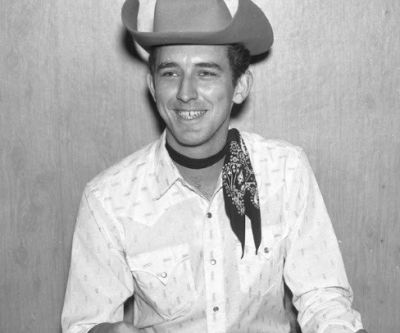December 20, 2018
Tuesday
8:00 p.m.
Minneapolis, MN
Test schedule
A live performance with Robin and Linda Williams at the Cedar Cultural Center
May 20, 2018
Sunday
3:00 p.m.
Lexington, MA
Lexington, MA
A live performance at the Saenger Theatre
April 10, 2018
Tuesday
8:00 p.m.
Tulsa, OK
Tulsa, OK
A live performance at the Brady Theater
March 17, 2018
Saturday
8:00 p.m.
Long Beach, CA
Long Beach, CA
A live performance at the Carpenter Performing Arts Center
March 15, 2018
Thursday
7:00 p.m.
Mobile, AL
Mobile, AL
A live performance at the Saenger Theatre
“Oh the gallant Fishers life,…” by Izaak Walton, from The Compleat Angler. Public domain. (buy now)
Oh the gallant Fishers life,
It is the best of any,
‘Tis full of pleasure, void of strife,
And ’tis belov’d of many:
Other joyes
are but toyes,
only this
lawful is,
for our skill
breeds no ill,
but content and pleasure.
In a morning up we rise,
Ere Aurora’s peeping,
Drink a cup to wash our eyes,
Leave the sluggard sleeping:
Then we go
to and fro,
with our knacks
at our backs,
to such streams
as the Thames,
if we have the leasure.
When we pleas to walk abroad
For our recreation,
In the fields is our abode,
Full of delectation.
Where in a brook
with a book,
or a Lake,
fish we take;
there we sit,
for a bit,
till we fish intangle.
It’s the birthday of novelist Charles Webb, (books by this author) born in San Francisco, California, 1939. He wrote a book that became one of the iconic films of the 1960s: The Graduate (1963; film version, 1967). Not many people realize that The Graduate is based on a book, but in fact the dialogue in the film comes almost entirely from the novel.
Webb grew up in Pasadena, California, and he turned down an inheritance from his father who was a wealthy doctor. He wrote The Graduate in the poolside bar of the Pasadena Huntington Hotel, and he based it loosely on his own experience: He was attracted to the wife of a friend of his parents, and he decided “it might be better to write about it than to do it.” When The Graduate was published, he was 24 years old.
It’s the birthday of Cole Porter, born in Peru, Indiana (1891). He was a composer and lyricist, and he wrote a string of hit songs: “I Get a Kick Out of You,” “Night and Day,” “You’re the Top,” “Let’s Do It, Let’s Fall In Love,” “I’ve got You Under My Skin,” and “Let’s Misbehave.” All of these songs were written within a 10-year period: between his first popular Broadway musical, Paris (1928)—his first musicals had been complete flops—and a terrible riding accident in 1937. Porter was at a party at the New York home of the Countess Edith di Zoppola when his horse rolled and crushed his legs. He claimed that he didn’t realize how badly he was hurt and that while someone ran for help he finished up the lyrics to “You Never Know.” But he was in fact seriously injured—the doctors insisted that his right leg be amputated, maybe his left as well. Porter refused. He preferred to be in intense pain than be missing a leg.
He lived with the pain for more than 20 years, and he continued to write songs, but never at the same rate of success as he had before his accident. In 1958, after 34 operations on his leg, he finally agreed to have it amputated. The playwright Noel Coward went to visit Porter in the hospital, and he said: “He has at last had his leg amputated and the lines of ceaseless pain have been wiped from his face. He is a bit fretful about having to manage his new leg but he will get over that. I think if I had had to endure all those years of agony I would have had the damned thing off at the beginning, but it is a cruel decision to have to make and involves much sex vanity and many fears of being repellent.
However, it is now done at last and I am convinced that his whole life will cheer up and that his work will profit accordingly.” But Porter never recovered. He told friends, “I am only half a man now,” and never wrote another song. He died in 1964 at the age of 73.
He wrote “I Hate Men” for his musical Kiss Me Kate (1948):
I hate men.
I can’t abide them even now and then.
Then ever marry one of them, I’d rest a maiden rather,
For husbands are a boring lot that only give you bother.
Of course, I’m awful glad that mother had to marry father,
Still, I hate men.Of all the types of men I’ve met in our democracy,
I hate the most the athlete with his manner bold and brassy.
He may have hair upon his chest, but sister, so has Lassie!
Oh, I hate men!I hate men.
They should be kept like piggies in a pen.
You may be wooed by Jack the Tar, so charming and so chipper,
But if you’re wooed by Jack the Tar, be sure that you’re the skipper.
For Jack the Tar can go too far. Remember Jack the Ripper?
Oh, I hate men!If thou shouldst wed a business man, be wary, oh be wary:
He’ll tell you he’s detained in town on business necessary.
The business is the business that he gives his secretary!
Oh, I hate men!I hate men.
Though roosters they, I will not play the hen.
If you espouse an older man through girlish optimism,
He’ll always stay at home and night and make no criticism.
Though you may call it love, the doctors call it rheumatism.
Oh, I hate men!Of all I’ve read, alone in bed, from A to Zed about ’em,
Since love is blind, then from the mind, all womankind should rout ’em.
But, ladies, you must answer too, what would we do without ’em?
Still, I HATE men!
It was on this day in 1860 that the first true dime novel was published. It was called Malaeska, the Indian Wife of the White Hunter, by Ann S. Stephens, and it was the first of 321 novels published by Beadle & Adams in their series Beadle’s Dime Novels. The early dime novels were wrapped in a salmon-colored cover, and after the first 28, Beadle & Adams started adding illustrations. Before long, the phrase “dime novel” was used to mean any cheap, melodramatic pulp fiction, some of which actually cost 15 cents, not 10.
Many authors of dime novels wrote nothing else, but there were some established writers who tried their hands at writing pulp fiction. Theodore Dreiser may have helped write the Diamond Dick dime novels. Louisa May Alcott published more than 30 dime novels under the pseudonym A.M. Barnard. She wrote to her friend Alfred Whitman: “I intend to illuminate the Ledger with a blood and thunder tale as they are easy to ‘compoze’ and are better paid than moral and elaborate works of Shakespeare, so don’t be shocked if I send you a paper containing a picture of Indians, pirates, wolves, bears and distressed damsels in a grand tableau over a title like this: ‘The Maniac Bride’ or ‘The Bath of blood, A Thrilling Tale of Passion.'” Upton Sinclair supported himself by writing what he called “half-dime novels.” He said, “I discovered early in life that I possessed a happy knack—that of composing (and marketing) boys’ adventure stories. For a considerable period I used to talk these off to a stenographer, grinding them out at the rate of six or eight thousand words a day; in which manner I took care of myself from the age of 16. I have frequently walked all the way around Central Park, in New York, ‘thinking story.’ […] In those days I wrote under the name of ‘Ensign Clark Fitch’ and ‘Lieutenant Frederick Garrison’; and my productions appeared in brilliant red, blue, green and yellow colored priodicals, known as the ‘True Blue Library’ and the ‘Starry Flag Weekly.’ […] At the age of 20, I received a conviction of inspiration, and went away into the woods to write the ‘great American novel.’ […] I soon made the appalling discovery that my novel was not wanted, that my inspiration was not believed in, and that I was out of touch with the entire civilized world—an outcast and a tramp. I could no longer write entertaining dime novels—the effort to do so simply tore me to pieces, and the publishers of the dime novels soon found out that something was wrong, and passed me by.”
It’s the birthday of the novelist and peace activist Baroness Bertha von Suttner (books by this author), born in Prague (1843). Her father died before she was born, and she was raised by her mother. The family had once been wealthy, so she moved in upper-class circles, but they lived beyond their means. Still, Bertha received the best education, was fluent in several languages, and traveled all over Europe. When she was 30 she realized that it was time to stop relying on her mother, who was gambling away the rest of the family’s money. She took a job as a governess to a wealthy family, the von Suttners.
Unfortunately for her job security, Bertha fell in love with the son, Arthur von Suttner. Arthur’s mother disapproved of the romance between her son and Bertha, and was delighted when she found an advertisement in a Viennese newspaper looking for someone with exactly Bertha’s qualifications. She showed Bertha the ad and hinted that she should leave. The ad said: “A very wealthy, cultured, elderly gentleman, living in Paris, desires to find a lady also of mature years, familiar with languages, as secretary and manager of his household.” Bertha was 33, not exactly elderly, but she applied anyway and was offered the job. It turned out that her employer wasn’t elderly either—he was 43, and he was the industrialist Alfred Nobel.
Bertha and Nobel hit it off, and she was less of a secretary to Nobel than a friend. They spent their days walking around Paris and talking about ideas—art, literature, international politics. But after about a week, she got a telegram from Arthur saying that he couldn’t live without her. So she went back to him.
His family was no less enthusiastic about their marriage than before, and the two young people had to fend for themselves. They spent nine years living in the Caucasus, where they taught music lessons and read everything they could get their hands on. They also wrote—during those years, Bertha von Suttner published four novels, a memoir, and Inventarium einer Seele, or Inventory of a Soul (1883), in which she advocated for international peace.
The von Suttners made enough money from their books to travel to Paris, and there Bertha rekindled her connection with Alfred Nobel. She was quickly connected to a network of peace activists, and decided that the movement was her true calling. So she set out to write a novel that would advance the cause of the peace movement, and that was Die Waffen nieder, or Lay Down Your Arms (1889). It was wildly popular, and by 1905 it was going into its 37th edition and had been translated into nearly all of the European languages.
Von Suttner wrote Nobel letter after letter urging him to get more involved in the peace movement. He donated significant amounts of money to her causes, but he was skeptical—concerned that despite all the good will of the anti-war movement, its participants hadn’t formulated a realistic alternative. His ambivalence also came from his own life—he had made his fortune as the inventor of dynamite, and later through the development of weapons. He wrote to Bertha: “Perhaps my factories will put an end to war sooner than your congresses: on the day that two army corps can mutually annihilate each other in a second, all civilized nations will surely recoil with horror and disband their troops.”
Shortly before his death, Nobel informed Bertha that in his will, he was leaving his money for the creation of what is now the Nobel Peace Prize. She was thrilled—she responded: “Whether I am around then or not does not matter; what we have given, you and I, is going to live on.”
Nobel died in 1896, and the first Nobel Prize was given in 1901. In 1905, Bertha von Suttner became the first woman to win the Nobel Peace Prize that she had helped inspire.
She said, “Perhaps the universal sisterhood is necessary before the universal brotherhood is possible.”






